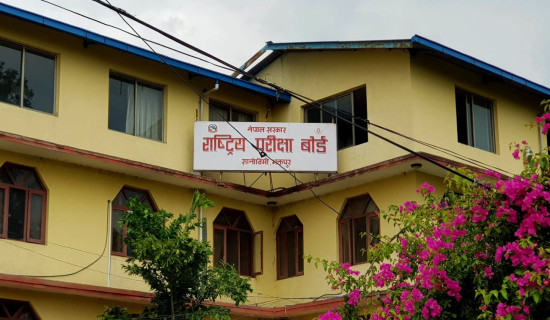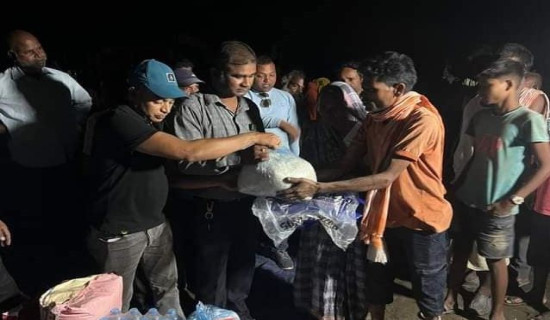- Friday, 26 April 2024
Organ Donations Save Numerous Lives
Organ donations and transplantations are one of the wonders of modern medicine. Organ donation is the process of surgically removing an organ or tissue from a donor and transplanting it to the recipient. When an organ has failed or has been damaged by disease or injury, transplantation becomes necessary. However, in case of kidney failure, hemodialysis can be an option till a suitable donor is found.
People with end-stage organ failure are in desperate need of that particular organ. Thousands of people every day die worldwide before that organ becomes available. Organ donors are always in short supply throughout the world. People in need of a transplant greatly outnumber those willing to donate an organ.
New life
The transplantation gives a new and wonderful lease of new life to the recipients. The transplantation is life-saving for the recipient and improves the recipient’s quality of life such as the need for hemodialysis removed after a kidney transplant and restoration of sight following a cornea transplant. Sometimes, a single recipient undergoes a transplant multiple times.
The kidney is the most transplanted organ worldwide followed by the liver and the heart. However, many other organs are being transplanted. In 2021, there were a total of around 144,302 organ transplants worldwide (Statista, 2022). A total of 92,532 kidney transplants, 34,694 liver transplants, and 8,409 heart transplants were performed globally in 2021. Organ transplantation is frequently the best or only treatment even though transplantation can be challenging and complex.
The organ or tissue that can be transplanted includes the kidney, liver, heart, pancreas, lung, intestine, cornea, middle ear, skin, bone, bone marrow, heart valves, and connective tissue. Recently vascularised composite allografts (transplant of several structures that may include skin, bone, muscles, blood vessels, nerves, and connective tissue) are now possible which also include hand and face transplantation. Sometimes double transplants such as kidney/pancreas and heart/lung can also be done.
People of all ages can be potential donors. When a person dies and has consented to organ donation, they are evaluated for donor suitability based on their medical history and age. For organ donation after death, a medical assessment is done to determine organs that can be donated. There are some organs that can be given all or part of without having long-term health issues. However, certain conditions, such as HIV, metastatic cancer, or severe infection would exclude organ donation. People with serious conditions like cancer, HIV, diabetes, kidney disease, or heart disease cannot donate organs as living donors.
The first renal transplant from a living donor in Nepal was performed successfully at Tribhuvan University Teaching Hospital in 2008. Since then, a few other government and private hospitals perform kidney transplantation regularly. However, the number of transplantations in the country is relatively small in comparison to around 3,000 people in need of renal transplantation alone every year. The Human Organ Transplantation Centre based in Bhaktapur carries approximately 150 kidney transplants per year. The first liver transplant was carried out successfully in Nepal at that health institution in 2016. The first brain death donor's kidney transplant was performed on May 11, 2017 there.
Our body compensates for the missing organ or organ part fairly shortly. However, there is some data showing that kidney donors may be slightly more likely to develop high blood pressure, preeclampsia, and chronic kidney disease over the long term. But the data is not substantial. Organ donation is major surgery and has risks such as bleeding, infection, blood clots, allergic reactions, or damage to other organs and tissues. Pain and discomfort may last for some time depending on the type of surgery and there can be visible, lasting scars at the site of surgery.
In the case of a live donor, it becomes important for the donor to fully understand the surgery and how becoming an organ donor might affect future health. It is the donor's decision alone. Don't let anyone influence that decision. Even if a friend or loved one is very sick, one has to consider how donating an organ might affect his/her own life. It is important to know that even though the donation process has started, a donor has the right to stop it at any time if s/he changes mind.
Legal provision
Nepal drafted the first Human Organ Transplantation Act in 1998 which was aimed at controlling the trade of kidneys and only the immediate relatives could donate their organs. The Act was amended and the Human Organ Donation Act, 2072 and Regulation, 2073 opened the doors for organ donation from clinically dead persons, donor exchange programmes, and expansion of the living donor pool. The amendment to the Act has allowed the removal of organs like kidneys, lungs, heart, liver pancreas, and small intestine from clinically dead people and their transplants to needy individuals. The amendments are also expected to help expand living donors' eligibility for organ donation and at the same time protect the poor and marginalised from organ trafficking.
Moreover, as per the Act, the buying and selling of organs is a punishable offense with both fines and imprisonment. The rate of cadaveric organ donation is very small in Nepal mainly due to a low level of awareness, and social, cultural, and superstitious beliefs. The present awareness campaign seems not sufficient about organ donation after death. There are limited numbers of transplantation facilities in the country. Therefore, it is called upon the government to consider expanding transplantation services to other regions of the country as well.
(Dr. Lohani is the clinical director at the Nepal Drug and Poison information Centre. lohanis@gmail.com)















